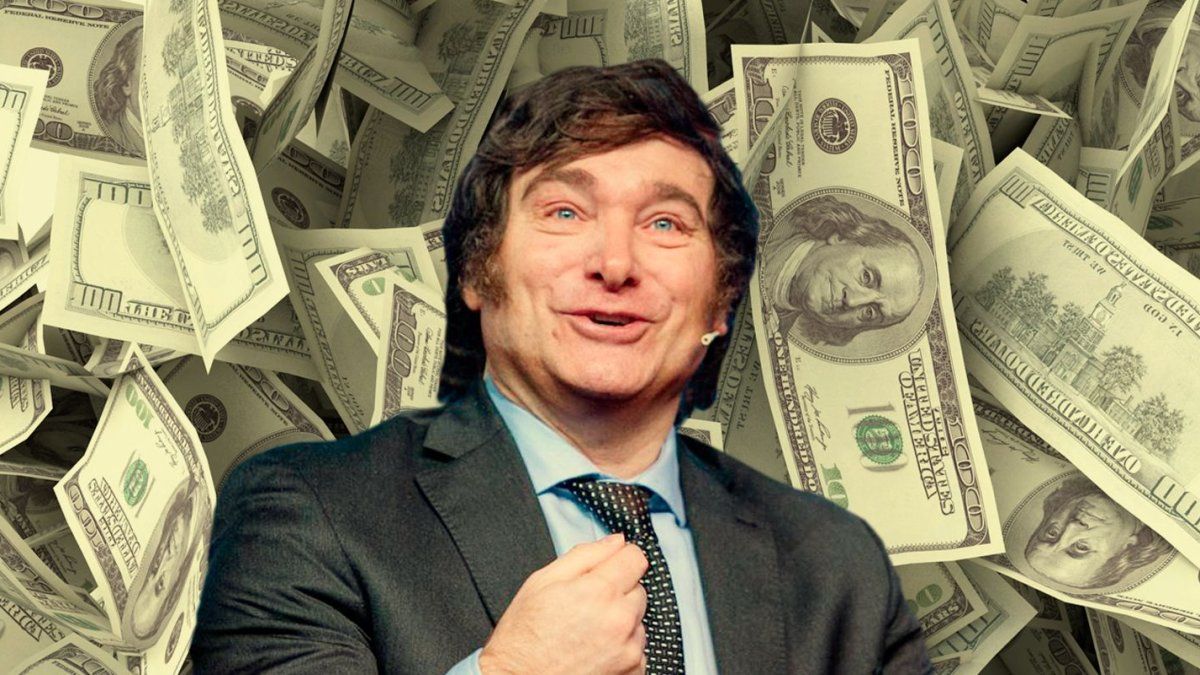Finally out of the office: Angela Merkel will give the celebratory speech on Monday evening when Jürgen Trittin says goodbye to politics. What does the CDU politician have in common with the top economist?
You wouldn’t have guessed it. When the Green parliamentary group retires Jürgen Trittin from politics on Monday evening, Angela Merkel will give the celebratory speech. It is a remarkable event in every respect: For the first time in a long time, Merkel leaves the writing room where she is working on her memoirs for a public appearance.
Of all people, they invited the Greens, who actually complain every day that they have to deal with the failures of 16 years of Merkel’s rule. Also the Greens, about whom there is currently no agreement in the post-Merkel Union as to whether they should be friends or foes, the worst opponent in the traffic light coalition or a potential partner for their own government after the next federal election.
And then of course there are the two protagonists.
Angela Merkel and Jürgen Trittin are – to put it carefully – of very different temperaments. You: Hard to be disturbed. He: sometimes short-tempered, sharp and hurtful. They belong to different parties, and their socialization – he in the student movement in the West, she as a physicist in the East – could not be more different. At times they fought each other hard politically.
Trittin on Merkel: “Cold mother of the nuclear industry”
Even in the last years of her chancellorship, Trittin did not skimp on criticism of Merkel: in 2019, he attracted attention in the Bundestag when he interrupted the Chancellor’s speech on energy policy with the interjection: “You haven’t done anything for 14 years!”. And in 2021 he summarized in an interview: “Mrs. Merkel has steered the country through the middle, but an incredible amount has been left behind.”
“No power for anti-democrats”: As a farewell, Trittin taunts the AfD
02:17 min
And yet Angela Merkel and Jürgen Trittin have developed respect for each other. In the plenary session of the Bundestag, they were sometimes seen sitting together in the back seats for a chat. They have experienced a lot, against each other – and with each other. Actually, they would have liked to rule together. But it did not get to that.
In the beginning they narrowly miss each other. Angela Merkel was Minister for Women in Helmut Kohl’s cabinet for four years from 1990, and Jürgen Trittin was Federal and European Minister in Lower Saxony. In 1994, Merkel moved to the Ministry of the Environment, and Trittin became federal chairman of the Green Party. And the battlefield of their first confrontation is in Gorleben.
Merkel, a staunch supporter of nuclear power, repeatedly pushes through the transport of Castor containers to the interim storage facility in Wendland despite massive protests. In July 1997, Merkel introduced an amendment to the Atomic Energy Act with the aim of securing the existence of nuclear power plants. Trittin believes that the minister is willing to serve the power plant operators and calls her a “cold mother of the nuclear industry”.
Green ideas: Angela Merkel bites granite
But in these years, the CDU politician has had her first points of contact with the Greens in terms of environmental policy, even if Merkel is biting into the rocks within her own ranks. Merkel wants to implement a summer smog regulation, but fails because of the CSU and Helmut Kohl. The same applies to your plan for an eco-tax. It only came in 2000 under the red-green coalition, now with an environment minister, Jürgen Trittin. Merkel, now CDU leader, is suddenly against it. She now calls the eco-tax a co-tax.
In March 2001, Trittin clashed with Merkel’s CDU general secretary Laurenz Meyer. Meyer, already Merkel’s second general secretary after Ruprecht Polenz and in office for just six months, criticized a decision by the Green party conference to restore the right to asylum in the form it existed before 1993. Trittin reacts to this with the sentence: “Laurenz Meyer has the mentality of a skinhead and not just the looks.” The Green also mocks Meyer’s confession that he is proud to be German. “That’s the shallowness, the intellectual depth that characterizes every racist thug in this republic,” says Trittin.
Merkel reacts indignantly. The Union, namely the then parliamentary group leader Friedrich Merz, demanded that Chancellor Gerhard Schröder dismiss Trittin from the cabinet. The Chancellor cannot afford that. Schröder calls on Trittin to apologize. He does so and remains in office – much to the displeasure of Merkel, who says that “a succinct apology” is not enough. She’s wrong.
Trittin campaigned for Joachim Gauck as Federal President
In May 2010, Trittin made Merkel’s life doubly difficult on one issue: Federal President Horst Köhler, who was brought into office in 2004 by Merkel and FDP leader Guido Westerwelle as a black and yellow signal, said in an interview that a state with foreign trade interests like Germany must know that “in an emergency, military action is also necessary to protect our interests, for example free trade routes.” Köhler is thus anticipating what the Bundeswehr will actually do in the Red Sea in 2024 against attacks by the Houthi rebels in Yemen. But in 2010 he was still entering politically heavily mined territory.
Trittin strongly criticizes Köhler: “It is incompatible with our constitution to pursue gunboat politics,” says the Green party leader. And you don’t need a “loose rhetorical cannon at the top of the state.” Köhler resigns. A few weeks later, in an interview, he revealed that, among other things, he found Trittin’s criticism to be so disrespectful that the only way to avert damage to the office was to leave.
But that’s not enough. It is Trittin who brings the name Joachim Gauck into play as Köhler’s successor. He spoke about it with SPD leader Sigmar Gabriel, who sent Merkel a text message and asked the Chancellor whether she could imagine Gauck, who enjoys sympathy among the red-green coalition, the FDP as well as the CDU, as a consensus candidate. She can’t. Merkel appoints Lower Saxony’s Prime Minister Christian Wulff as head of state – despite much criticism from the public. The Chancellor now stands as a party soldier who puts the interests of the CDU before the welfare of the state. And after Wulff’s resignation, she has to bow: GAuck becomes head of state, against Merkel’s wishes.
How Trittin killed black and green in 2013
What both separates and unites Merkel and Trittin is the nuclear phase-out. Red-Green enforced it, Merkel reversed it with the FDP in 2010. In 2011, after the Fukushima reactor accident, Merkel made a turnaround. Trittin triumphs. Black-yellow is returning to exactly the decisions that red-green agreed upon. In the Green parliamentary group, he is committed to agreeing to Merkel’s exit plan.
In October 2013, the Union and the Greens explored a coalition after the federal election. Merkel, who only narrowly missed out on the absolute majority of seats in her outstanding election victory, has been able to imagine the black-green coalition for a long time, with some claiming, in view of the miserably failed liaison with the FDP, that this is her true dream coalition. The Greens would be your third coalition partner after the SPD and FDP.
There are also sympathizers among the Greens. But the decisive figure is Jürgen Trittin. As in 1998 when he formed the red-green coalition with Schröder, he would have to involve the left wing of the party, which is massively at odds with the CDU and CSU.
In the negotiations, Trittin puts financial ideas and wishes for tax increases on the table that are unthinkable for the Union. The impression is growing that Trittin is sabotaging the alliance. He may fear that the Greens could end up exactly like the FDP, which was thrown out of parliament in the federal election. After a final attempt at negotiations lasting more than six hours, the explorations failed. Merkel is now dependent on a grand coalition again if she wants to continue to govern.
In the Union, the person responsible for the black-green failure is quickly identified. Wolfgang Schäuble said on the Anne Will talk show: “Mr. Trittin prevented it.” Merkel regrets that she didn’t go through the open door and fears that she probably won’t open herself up to the Black-Green coalition a second time.
Jamaica? Didn’t fail because of Trittin
She is right. Four years later, the opportunity arises again, but only with the FDP as another coalition partner. The negotiations for a Jamaica alliance are going slowly; Merkel is impressed by the expertise of many young Greens and flatters the supposedly more difficult partner. Impatience and dissatisfaction are growing among the liberals.
On November 18, Trittin gives an interview to Bild am Sonntag in which he sets five conditions for Jamaica, particularly in migration policy. It’s the occasion Jamaica skeptics have been waiting for. FDP leader Christian Lindner pulls the emergency brake and gets out. Merkel, however, will definitely remember that Trittin was not the cause of the failure this time, but rather just gave others an excuse to avoid the alliance.
In Merkel’s last years in the Chancellery, Trittin lost political importance. As a foreign policy expert, however, he represents quite idiosyncratic positions, some of which are not far removed from Merkel’s – especially in Russia policy. He goes against the party line in favor of the construction of the Nordstream 2 Baltic Sea pipeline. He puts forward economic reasons for this, even if he knows that nothing can be achieved with the pipeline in terms of climate policy. In an interview in December 2018, Trittin said: “The basic argument that one would become dependent on the Russians is wrong. Pipeline gas leads to mutual dependence because the bond between producer and consumer is strong.”
Even when the then Green Party leader Robert Habeck called for defensive weapons to be delivered to Ukraine in May 2021, Trittin vehemently objected and thus sided with Merkel. He defended this position until shortly before the start of the war. After the Russian attack, he changed course, as did Chancellor Olaf Scholz and Foreign Minister Annalena Baerbock. At the end of 2023, Trittin will announce that he will resign from his Bundestag mandate after 25 years.
Source: Stern
I have been working in the news industry for over 6 years, first as a reporter and now as an editor. I have covered politics extensively, and my work has appeared in major newspapers and online news outlets around the world. In addition to my writing, I also contribute regularly to 24 Hours World.




